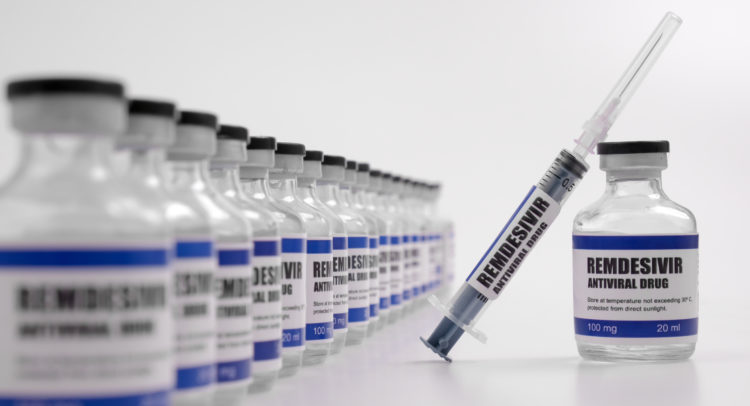Gilead Sciences Inc. could be granted additional emergency use authorization by US regulators for its drug remdesivir to include patients hospitalized with moderate COVID-19, despite recent mixed trial results, the company’s top research executive told Reuters on Friday.
Data published by Gilead (GILD) on Friday showed that a 5-day course of intravenous remdesivir modestly helped less severely ill COVID-19 patients, but a 10-day course did not show a benefit.
Back in May, the US Food and Drug Administration (FDA) approved sales of remdesivir on an emergency basis for patients hospitalized with severe COVID-19, the disease caused by the new coronavirus, after trial data showed that the antiviral drug helped shorten their hospital recovery time.
Diana Brainard, head of clinical research at Gilead, also told Reuters that the company’s formal FDA application for the drug, submitted earlier this month, seeks approval for use in all hospitalized patients with COVID-19.
The 600-patient analysis, published by the Journal of the American Medical Association, found that moderately ill patients treated with the antiviral drug for up to 5 days had significantly higher odds of improvement in certain areas, such as whether or not they needed supplemental oxygen, compared to patients given standard treatment.
Brainard said the clinical importance of the benefit for those patients was uncertain, due to continued questions about how best to measure patient outcomes other than survival.
Differing trial results for remdesivir raise “the question of whether the discrepancies are artifacts of study design choices, including patient populations, or whether the drug is less efficacious than hoped,” according to a JAMA editorial accompanying the study.
The study in moderately ill COVID-19 patients demonstrated that 11 days after starting treatment, 65% of the 10-day remdesivir patients, 70% of the 5-day patients and 60% of the standard care patients had left the hospital.
Side effects seen more frequently in the remdesivir groups included nausea, low blood potassium levels, and headache.
The JAMA editorial said important questions remain regarding the efficacy of remdesivir, including which patients are most likely to benefit from the drug, the optimal duration of therapy, the drug’s impact on clinical outcomes, and its relative effect if combined with generic steroid treatments.
Shares in Gilead have advanced about 2.3% year-to-date with the $78.31 average price target indicating another 18% upside potential in the shares in the coming 12 months.
Truist Financial analyst Robyn Karnauskas last week lowered the stock’s price target to $67 from $74 and reiterated a Hold rating, saying that while there is some visibility around the commercialization from remdesivir in COVID-19, there is still “commercial risk” for the program.
The rest of the Street is cautiously optimistic on the stock with a Moderate Buy analyst consensus based on 10 Buys versus 11 Holds and 1 Sell. (See Gilead stock analysis on TipRanks).

Related News:
Gilead Sinks After-Hours As FDA Rejects Arthritis Application
Verona Up 10% On Lung Trial Kick Off; Analyst Initiates Stock At ‘Buy’
Inovio: Valuation and Volatility Keep This Analyst Sidelined
















